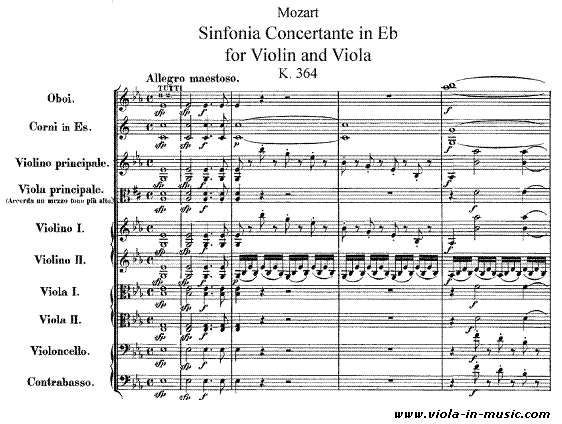
Gangster Squad, by Steve Jablonsky-4/10
Did it fit the movie? Yes, I think so. It was dark and adrenaline pumping. Jablonsky make use of driving percussion and strings a lot, with horn hits in between and the occasional harmonica.
Did it make me feel something? No, not really. My heart did kinda jump at points like in the track You're Talking to God, when the sound got really loud and intense, and the one track that got me excited was Welcome to Los Angeles, in which there's this really cool beat with a fun string melody. The problem is that the score pretty much just sounds that track the whole time. Perhaps in this movie, the absence of music served to make certain scenes more dramatic because I kept waiting for some kind of dramatic rise beyond the heart-pumping drums and strings, and I didn't really feel it.
Was it original? For the most part, no. It sounded like just another action movie score to me, with the driving beats and strings.The addition of the harmonica was unexpected and new, though, so that was kinda interesting. I didn't expect it!
Did I like it? No, not particularly. There was no melody, and I have a hard time with scores that have no recurring melodies. It's a personal preference, though. I think that scores can be successful without melodies, but it's harder for me to relate to them when they don't. Purchasing suggestion? I personally wouldn't buy it. I just didn't like it enough. Listen to it on YouTube and see you agree!
The Impossible, by Fernando Velasquez-7.5/10
Did it fit the movie? Yes, completely. I had no trouble imagining a family struck by tragedy while listening to this score. Lots of strings and piano mostly, with a cello solo popping up consistently throughout and some woodwinds.
Did I feel something? Oh yeah. Every single track was designed to pull at your emotional center in some way. Most of the music was longing and heart rending except for Is It Over?, which sounded totally frightening-I'm guessing it came at the point when the family was separated from each other. I felt the separation, loss, and devastation come through very clearly.
Was it original? No, and here's where I took off a couple rating points. Although I really enjoyed the melodies, they just seemed a little too predictable to me. Also, although the use of solo cello with strings and piano was lovely, it's also not very new. I've heard plenty of scores with a similar sound.
Did I like it? Yes, I did :) It made me long for my home and my family, and whenever scores make me feel something in my own life, I usually like them. It was very peaceful to listen to while reading or cooking or doing homework, and there are some tracks that I absolutely love, including Go and Help People and The Impossible End Titles. Purchasing suggestion? Buy the tracks you like! They're worth it.
Promised Land, by Danny Elfman (January Composer of the Month)-7.5/10
Did it fit the movie? You know, at first I wasn't sure if it would! Bouncing back from Silver Linings Playbook, Elfman's usually whimsy and dream-like style comes through strongly in this score, and I don't really think "whimsy" when I think of a movie about the fracking industry. But the more I listened to it and the more I thought about it, I realized that it works. Why? Because the whole premise of the movie plays on people's hopes and dreams. The title refers to the hope of the promised land, the home God promised to the ancient Israelites in Biblical times. So I think a whimiscal Elfman score works well! True to his style, there's lots of woodwinds, xylophones, and strings.
Did I feel something? Yes. Tracks like Traveling made me think of moving through life holding onto a dream or a goal, and letting that drive my actions. Weepy Donuts, although humorously named, actually made me sad-it's just a solo piano with a few strings, playing out a simple melody. I think of longing for a lost time in my life when I hear it.
Was it original? Yes, and here's why-the haunting female voices that show up every once and awhile. They're child-like and on the line between eerie and friendly. I thought it was a perfect addition, and it made the score just different enough from others I've heard, because some of the music does sound very familiar to me.
Did I like it? Yes, I think so. It wasn't a perfect score, but I enjoyed a few tracks very much. The ones I mentioned previously, as well as The Speech. Purchasing suggestion? Buy the tracks you like and support our composer of the month!
Zero Dark Thirty, by Alexandre Desplat-8.5/10
Did it fit the movie? Totally. Dark, intense, scary, horrible, suspenseful, sad, angry, frustrated, heartbroken, lost-all of these adjectives and more came to my mind at some point while listening the score, and I think all of these things apply to the hunt for Bin Laden. Desplat uses a variety of instruments, some definitely Middle-Eastern, others more traditionally orchestral.
Did I feel something? Yes, I did. In fact, the score was almost uncomfortable to listen to at some points because of the darkness embedded in it. I let it run in the background while doing homework, and my work suddenly took on this tone of urgency. I felt uptight and uneasy. It's not that the music is awfully written. It's just...uncomfortable. I can't really describe it. Listen to it and you'll understand! There were a few tracks that tugged at my heart too-Maya On Plane is my favorite.
Was it original? Very much yes. The melodies, though few, were unique. I heard so many instruments and some interesting electronic effects as well. Bombings has this sound in the background of the track that sounds like a slow, twisted, almost evil heartbeat, and I'm really curious about how they made it. Monkeys and Flight to Compound have similar "heartbeats."
Did I like it? Yes, and here's why-because it's extremely well crafted. Every track has something distinctive about it, distinguishing it from the others. I've noticed this in other works by Desplat as well. He makes every track different, and I love that. It's also tailored to the film's subject matter very well, another thing Desplat is famous for. Purchasing suggestion? Buy only the tracks that you know you'll want to listen to again and again. Most of the score is too uncomfortable for that, but I still think it needs some love and support!
And now, ladies and gentlemen, the nominees for Best Original Score are:
Mychael Danna, Life of Pi
Alexandre Desplat, Argo
Dario Marianelli, Anna Karenina
John Williams, Lincoln
Thomas Newman, Skyfall
Yay! Congrats to all the nominees! The exciting thing about all of these is that I've reviewed 4 out of the 5 scores nominated (see here and here). Your challenge this week is to listen to all of these scores, which is easy because they're all on Spotify for free listening! Comment below or on my Facebook page to let me know which one you think should win! I'll review Argo next week, along with giving my predictions for who will win :) Thanks for reading and have a great week of good music listening!








